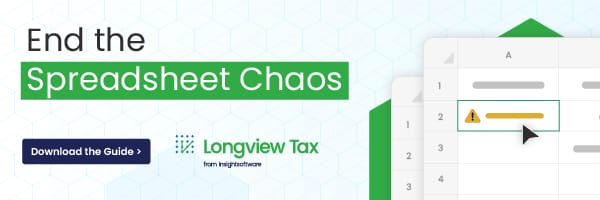- L-Plate Retiree
- Posts
- When Fitness Tracking Turns Stressful
When Fitness Tracking Turns Stressful
A new report warns that constant step counting and data sharing can hurt mental health – here’s how to find balance and joy in movement again

because retirement doesn’t come with a manual

Markets slipped as profit-taking edged ahead of a busy earnings week
The quick scan: U.S. equities closed lower on Wednesday, with tech and growth stocks leading the decline amid pause in the recent rally. The Dow managed to hold better than its peers—but all major indexes were in the red.
S&P 500: -0.53% to 6,699.40 – slipping from recent highs as momentum softens
Dow Jones: -0.71% to 46,590.41 – retreat following its recent record close
NASDAQ: -0.93% to 22,740.40 – tech led the down-move amid earnings and tariff concerns
What’s driving it: The pullback appears driven by two key factors – unfavourable earnings surprise from technology and renewed trade-tension worries between the U.S. and China. As markets test upside exhaustion, investors took profits rather than chase further gains, especially in tech stocks that had run hard lately. With fewer strong catalysts coming immediately, caution crept in and sellers grew marginally more active.
Bottom line: For L-Plate Retirees, the market’s pause is a gentle reminder that gains don’t run forever unchallenged. Stay diversified, anchor your core holdings, and use the dip not as a trigger to sell – but as a chance to check your exposure and readiness for when the next leg up or down appears.
It's not you, it’s your tax tools
Tax teams are stretched thin and spreadsheets aren’t cutting it. This guide helps you figure out what to look for in tax software that saves time, cuts risk, and keeps you ahead of reporting demands.

When the Step Count Becomes a Step Too Far

are you addicted to checking “the stats”?
The scoop: Fitness tracking has become second nature for many of us – counting steps, calories, hours of sleep and heart rate variability. But as a recent Channel NewsAsia feature suggests, the culture of “quantified health” may be doing more harm than good for some. What began as motivation to move is, for an increasing number of people, turning into a source of anxiety, guilt and self-critique.
The article featured both fitness enthusiasts and health experts who observed how constant tracking can shift behaviour from mindful movement to mechanical performance. When every walk, workout or night’s sleep becomes data, it can distort how we relate to our bodies. Instead of noticing how we feel, we focus on whether we performed – often chasing arbitrary metrics rather than true well-being.
Psychologists call this “data fatigue.” When the numbers start to dictate how we feel about ourselves, motivation slips into pressure. The piece highlighted cases where users experienced stress and even shame if their daily step count fell short, suggesting that over-monitoring may end up discouraging rather than empowering.
Another theme was the social pull to share. Many users don’t just record their stats – they broadcast them online. While sharing can promote accountability and community, experts warned it can also fuel comparison and competitiveness, particularly for those recovering from illness or adjusting to new physical limits. The “need to share” can shift focus away from health to validation.
Still, the takeaway isn’t to ditch your tracker altogether. When used with balance, these tools can reinforce good habits, keep you active, and highlight progress that might otherwise go unnoticed. The key, experts said, is to treat the data as a guide, not a judgement – a way to learn about your body, not lecture it.
Actionable Takeaways for L-Plate Retirees:
Track mindfully: Use your device to observe patterns and progress, not to score yourself. Trends over time matter more than daily tallies.
Pause the pressure: Skip a day of tracking each week – move intuitively and reconnect with how activity feels, not how it reads.
Share wisely: If you post your fitness data, do it to celebrate movement, not compete. Connection should lift you up, not weigh you down.
Watch for stress cues: Feeling anxious about missing a goal is a sign to recalibrate your relationship with the numbers.
Focus on function: Fitness is about energy, mobility and joy – metrics are simply tools to help you get there.
Your turn:
Has your tracker ever made you feel guilty instead of proud?
Would a “tech-free” day each week help you move more freely – and maybe even enjoy it more?
👉 Hit reply and share your story – your insights could inspire fellow readers in future issues.
☕ If today’s read reminded you that fitness should feel good first, you can shout me a coffee on Ko-fi.
An espresso shot for your brain
The problem with most business news? It’s too long, too boring, and way too complicated.
Morning Brew fixes all three. In five minutes or less, you’ll catch up on the business, finance, and tech stories that actually matter—written with clarity and just enough humor to keep things interesting.
It’s quick. It’s free. And it’s how over 4 million professionals start their day. Signing up takes less than 15 seconds—and if you’d rather stick with dense, jargon-packed business news, you can always unsubscribe.
If these insights resonate with you, you’re in the right place. The L-Plate Retiree community is just beginning, and we’re figuring this out together – no pretense, no judgment, just honest conversation about navigating this next chapter.
Subscribe now to receive daily insights, practical tips, and the occasional laugh to help you thrive in retirement. We speak human here – no jargon without explanation, no assuming you’ve been investing since kindergarten.
And if today’s investing note hit the spot, you can buy us a coffee on Ko-fi ☕. Consider it your safest trade of the week – low risk, high return (in good vibes).
Because retirement doesn’t come with a manual… but now it does come with this newsletter.
The L-Plate Retiree Team
(Disclaimer: While we love a good laugh, the information in this newsletter is for general informational and entertainment purposes only, and does not constitute financial, health, or any other professional advice. Always consult with a qualified professional before making any decisions about your retirement, finances, or health.)



Reply